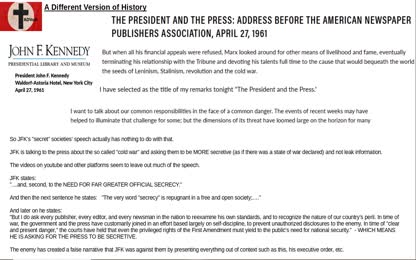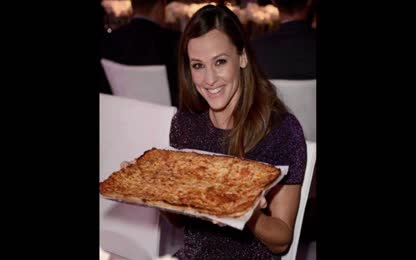Advertisement
The Secret of Selling The Negro (1954)
I do not think I can add anything useful, here.
- Category: Uncategorized,We are Only in It for theMoney
- Duration: 21:23
- Date: 2020-02-02 21:29:43
- Tags: racial marketing, the great society aftermath
19 Comments
Video Transcript:
I'm bringing it over here. I'm sure this is going to be a problem for me. We'll move that over there. We'll put you here now. You got the level on that, Joe? How's this video coming through? All right, the light's hot enough. Don't forget the dial is closed. All right, be sure to stay clear at number two camera. And I'll set. Stand by. Bye. I'm going to put you here. I'm going to put you here. I'm going to put you here. I'm going to put you here. I'm going to put you here. I'm going to put you here. I'm going to put you here. I'm going to put you here. I'm going to put you here. I'm going to put you here. I'm going to put you here. I'm going to put you here. I'm going to put you here. I'm going to put you here. I'm going to put you here. I'm going to put you here. I'm going to put you here. Hello, I'm Bob Trout. I've got a story here that I think is big, really big, because it's found to have a terrific impact on business. I'm talking about a new market, a big new market, millions of them millions of new prospects. I'm going to put you here. I'm going to put you here. millions of new prospects with fifteen billion dollars to spend. At right I said fifteen billion. That's a lot of money, isn't it? The surprising thing is that it's a fresh market, still full of opportunities. It grew up so fast, got so big in a hurry that few of us realized it's scope. Now these days nobody's likely to pass up chances to sell. And yet right here in our own front yard there's an neglected market. There's money waiting to be spent. To get the story of this market, to be able to tell you the secret of selling the Negro, we did a lot of digging. We talked in leading businessmen, the customers and the salesmen. We went to Washington DC. We set up cameras and other key points around the nation. And out of this all, there emerged a story, the story of a new market. Yes, this is the market we're talking about, the new Negro family. Their name is Wells or Wilson, Smith or Brown or Alexander or Breed. They live in Chicago, in Atlanta or New York, in Detroit, St. Louis, Los Angeles. Any one of the thousand cities and towns. All over the country, families such as this are enjoying you prosperity. They have new interests, new standards of living, a buying power they've never had. They're good prospects for practically all types of goods and services. All too often though, they're overlooked prospects. But, because of some good valid reason, no. They're overlooked because of mistaken ideas. Because of out-of-date ideas about how the Negro lives and how he buys. The truth of the matter is that the Negro lives pretty much the same as other folks. He buys pretty much the same way too. But just the same, a lot of old doubts and opinions keep cropping up over and over again. I don't like to do business with Negroes. They're drifters, you can't keep track of them. Yes, although a lot of people think that way, the truth is that one out of every three Negro families living in cities today owns its own home. That figure comes directly from the United States Bureau of America. And, maybe so, but Negroes are poor credit risks. Not more of a credit risk than any other group. Actually, the Negro home buyer meets his payment statefully. Often more faithfully than other race groups in the same economic level. That's the information we got from people who ought to know the National Association of Real Estate Boards. Well, maybe, but... I've always heard that Negroes buy shoddy poor quality merchandise. No, it's just the other way around. According to leading researchers, in proportion to population and income, Negroes buy more quality products than any other comparable United States group. You see, there are a lot of confused notions about the Negro customer. But when you dig right down and find out about them, they just don't hold water. Negroes own homes. They meet their payments faithfully. They buy good brands of merchandise. So why let a lot of old-fashioned ideas hurt profits? Take a look at the real facts. Here in Washington, D.C., the nation's capital, some amazing facts and figures about this new market have been uncovered. For a first-hand report, we would like to take you directly to the United States Department of Commerce, to hear this story from the Secretary of Commerce himself. Here is the honorable Sinclair Weeks, the Secretary of Commerce of the United States. In the Department of Commerce, we are constantly alert to trends that mean healthier national economy. Better business for the nation as a whole. Recently, we have been interested in a rising young market, one that represents a huge economy. A rising young market, one that represents a huge potential for goods and services. I'm referring to the new Negro market. The tremendous buying power of this group is backed, of course, by an increased earning power. The average Negro family's income is at a record high. In fact, since 1939, it has increased more than the average income of all other Americans. Let's take a look at a few figures. An official Department of Commerce report shows that at least one third of the Negro's living in cities earned from $2 to $5,000 a year. Today, the average Negro wage earner brings home a paycheck four times larger than the one he collected in 1939, as a whole of the Negro market. As a total income of about $15 billion every year, and after taxes, Negro families still have many billions of dollars to spend. Here is a buying power that cannot help but have a tremendous effect on our national economy and on business prosperity in general. When these dollars are spent for a wide range of goods, services and employment, business everywhere is bound to feel impact. This new buying power has resulted in a class Negro market, a profitable above average income group of consumers. For example, the nation's largest newspaper and magazine research organization, Daniel Starch and staff, reports these significant figures. More than 51% of the readers of Ebony magazine have a record player in their homes. Almost 64% own a television set, and almost 78% enjoy the convenience of an electric refrigerator. It is also a fact, and this is from the magazine The Food Field Reporter, that Negro spend almost $3 billion a year for food alone. For capital, they buy more cosmetics, drugs and toiletries than anyone else in the country, and their children are better educated too, because since 1930, enrollment in Negro colleges is up 25% percent. But really to recognize the importance of this class Negro market, we must realize that something has been happening economically in our country. People are on the move. The population is shifting. The makeup of metropolitan populations today is different than it was just a few short years ago. To give you a better idea of what we mean, we set up several cameras, candid cameras, in a number of shopping locations. Take a look at these shoppers. Notice what a large proportion of them are Negro. What's the reason? It's simply this. Negro families are moving into the cities where there are more job opportunities. Here they find occupations with more prestige and security, jobs that pay more money. As a result, Negro families today often make up the largest part of central city consumer prospects. A shoe store in Chicago's loop, for example, reports that more than 50% of its customers are Negroes. In another case, a drug store located at a transfer point in a non-Negro neighborhood finds that its Negro customers total 25%. The trend is plain. The new Negro families today are moving into more populated areas, to the city where there are more stores, more buying opportunities. Since 1940, in San Francisco alone, the Negro market has increased by 89%. In Chicago by 81%. Houston, Texas, 45%. Philadelphia, 50%. The impact of this new buying force is so tremendous that actually in 14 major United States markets, a product cannot be number one without Negro support. A product must have the backing of this big new buying power to be a leader in the field. What do you have to sell? Chewing gum or cars? Toothpaste or transportation? Whatever it is, here are millions of prospects. And these prospects are everywhere. Negro customers can no longer be pigeonholed. They cannot be classified as prospects who trade only in certain stores, certain neighborhoods. Today, Negroes shop downtown. They shop in supermarkets. They shop in small neighborhood stores. They'll buy from anyone who wants to sell to them. But we all know that before you can sell to customers, you've got to get to know them. You must understand something about them. What do the Negro customers buy? Why do they buy? How do you sell to them? Let's find out. Let's hear the opinion of man who has spent a lifetime studying the buying habits of customers the world over. Here is what sales psychologists have to say about selling to the Negro. The secret of selling to the Negro is expressed in one word. That word is recognition. Now there's nothing unusual about that. People want to be recognized. They need recognition. That's basic in all of us. But perhaps because he's had so little of it, the Negro needs even more. He needs to feel important and appreciate it. This need is a very real and important one. It shows up even in many of the Negro shopping habits. Anyone who sells or wants to sell to the Negro customer should know about some of these habits. Three habits in particular play a big part in every sales transaction. To begin with, most Negroes buy by brand. They ask for products by name. They're quick to turn down off brands. Do you wonder why? Well, listen to what this customer is thinking. That last had I bought just didn't hold up at all. You see, for a long time, the Negro has been sold a lot of shoddy, second-class merchandise. So now he asks for name brands in order to make sure he gets his money's worth. Buying by brand, that's the first important Negro buying habit. Now for the second, the Negro buys good quality merchandise. Symbols of quality and prestige are very important to the Negro customer. This woman, for example, is buying fine crystal air. But she is also buying the admiration and approval of her friends and relatives. Listen to her thoughts. Isn't it beautiful? I can hardly wait to show it to Sally and Joan. It's a well-known fact that many Negro customers are influenced by the opinions of others. What their friends may think of a certain item often decides whether or not the sale is made. So remember, the Negro buys quality merchandise. That's the second important point. And here's the third thing to remember when selling to a Negro customer. When he specifically asks for one thing, don't try to sell him something else. Don't try to switch him at the point of sale. If you do, he'll probably react something like this. Doesn't he think I've got the money to pay for it? There's a reason for this reaction. Again, because he's had experience with cheap merchandise, the Negro resents being offered a substitute. He wants to be sold on quality, not price. The Negro buys by brand. He buys quality. And he doesn't like to be switched at point of sale. These are the keys to selling the Negro customer. Another point. The Negro family does things together. As a group, the family works as a unit. It lives as a unit. And it buys as a unit. When you sell to one member, you many times sell to all. It's also true that many places of entertainment are still close to the Negro. So he spends more of his money for the things that are available to him. Often for items that are considered luxuries. Another trait of the Negro market is the fact that it is a pre-sold market. We know that the Negro buys by brand. And he buys the brands that he knows something about. Where does the Negro buyer get this information? We know that Negro customers are turning more and more to the public patients that are tailored specifically to their needs. That give them the news and the information that they want to read about. Many leading businessmen and companies already know this. That's why so many of them are taking this direct, sure-root of reaching a Negro customer. The Vice President of Advertising of the Groot and Watch Company, for example, says this. In many important cities throughout the United States, Negroes are important customers of the credit joker. Therefore, it seemed that Ebony magazine would be a very important advertising medium for us. We would say it was very well received and from our viewpoints a very successful campaign. From the Remington Rand Company comes this statement. Our record show that advertising in Ebony has been effective in many ways. As all good advertising should, it has built a terrific amount of goodwill and has brought a volume of sales and sales inquiries. A representative of the Alaga syrup company makes this statement. Because of Alaga's regard for the influence of Ebony in the Negro market, advertising space was doubled. Alaga's long experience in selling to Negroes now takes the most direct route to its best customers, reaching Ebony's 2.5 million audience in every issue. And here are the statements of still other business leaders. Yes, many business leaders are discovering the most direct and most efficient way of reaching the new Negro market. Look here at the results of the same advertisement in two different publications. Ebony and another general magazine. You can see that proportionately, more men and women read the ad in Ebony than the one in the other magazine. And they did a better job of remembering it too. A greater percentage of readers noted, associated and remembered the ad in Ebony. But now, wait a minute. If the Negro market is so big and easy to reach, why aren't more companies going out after it? Well, often because of the feeling that there's something entirely different, unusual about selling to the Negro. But is it really so different? What do salesmen say? The successful salesmen who do a good job of selling in Negro communities? How do you go about getting the order? How do I get the order? Well, to tell you the truth, I don't do anything. Anything different, that is. I've been calling on these accounts long enough to know that the Negro just wants to be treated like everybody else. No matter who you're calling on, a little friendliness and courtesy help a lot. But naturally, anybody resents being patronized or talked down to. So I usually call a man Mr. Brown, Mr. Smith, or Mr. whatever his name is, until he tells me to call him by his first name. And of course, I always stick to business. I stay away from talk about race or religion or politics. That goes for talk about Negro celebrities too. You know, this business about what good prize fighters and singers the Negroes are? Who cares? When a guy is in business, no matter what color his skin is, he's interested in making a living, in making money. That's uppermost in his mind. I guess maybe what I'm saying is that I try to help any way I can't. Sometimes with displays or ad materials, or an idea once in a while. The important thing is that if it helps push sales for the dealer, it helps push him for me too. Handle the Negro account just like any of your others. Don't patronize. Stick to business. Get interested in the account. Pitch in and help. Any way you can. Sounds like pretty good sales advice. That's the secret of selling the Negro. Well, how about it? What do you think of this new market? It can open new outlets for you and for everybody who sells goods or services. It's still possible to get in on the ground floor when this market is just beginning to grow and to expand. The facts and the figures that we see here are just a small sample of what they promised to be next year and the years after that. Yes, here are men and women with money to spend. And they spend it for exactly the same things as you and I and everyone else. They buy almost every type of product and service that you have to offer. And they can be reached like everyone else through publications that appeal to their interests and desires. That deliver the kind of loyal readership that can be proved both in surveys and in down to earth sale. Here is already made market waiting to be asked to buy. Here are millions of customers for what you have to sell. Customers with 15 billion dollars to spend.









 Donate
Donate







